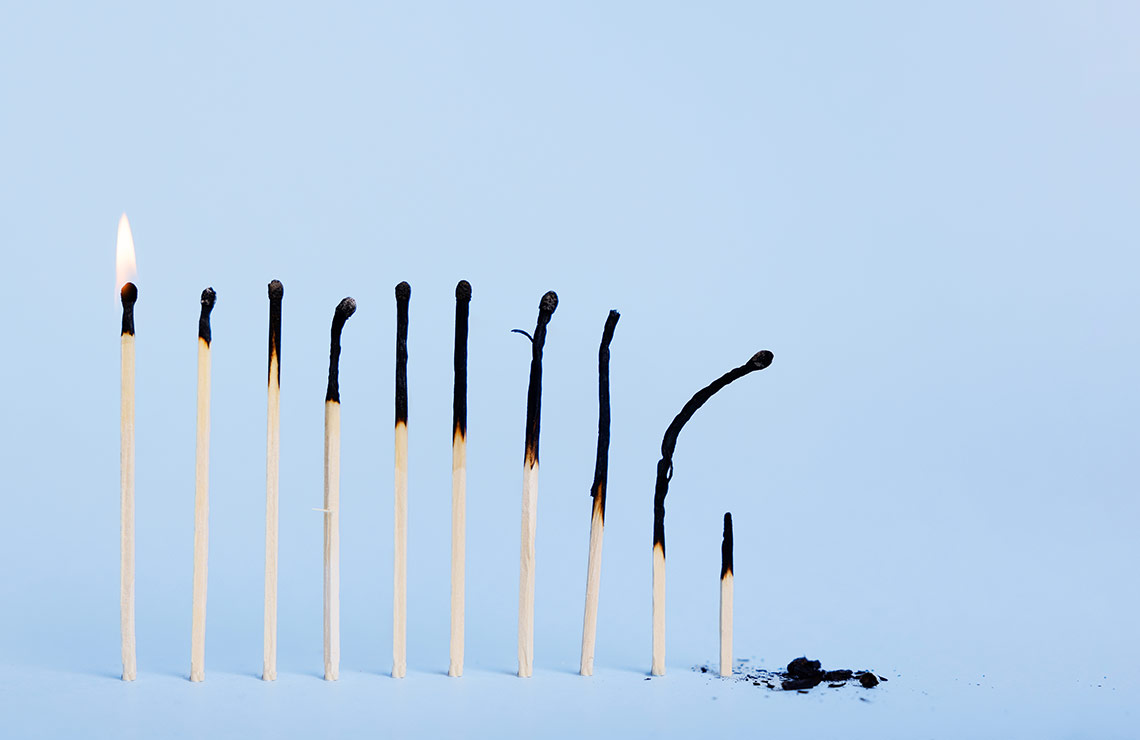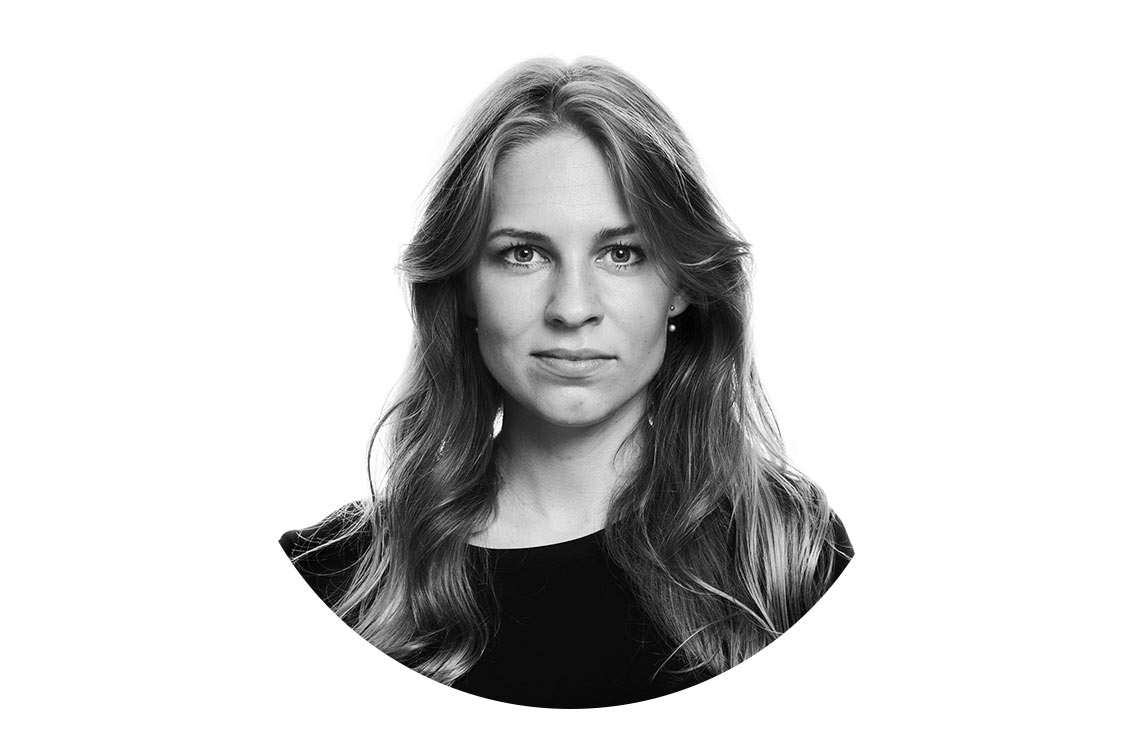
Understanding a world on fire
A war in Europe and polarised societies have set the world on fire and shaken democracies. As individuals, we have a whole new security situation to relate to. Malin Ekman, a US foreign correspondent, also reflects on the role the media have played in these new developments.
There was a time when many risks in our corner of the world felt so hypothetical, and many discussions so abstract, that it was easy to ask oneself: “When is something going to happen?”
That time has now passed. When Putin invaded Ukraine, we were confronted with the world’s destructive uncertainty, as if world history cracked down on us, taken our temperature, and heralded a ruthless, unstoppable future where nuclear threats could no longer be dismissed and where gas pipes could be blown up.
A ticking bomb
The last time I felt like that was on 9/11. I was 14 years old and on a family holiday in Phuket, my first trip outside Europe. We were staying in a basic apartment hotel. Mum turned on the TV set in the living room. Images of the planes colliding with the twin towers were shown over and over. I remember thinking that Thailand felt reassuringly distant, even though it seemed as if the whole world had been compressed into a ticking bomb.
That same feeling returned this spring.
My friend and colleague Per Bjurman from Aftonbladet says he intends to stand on his balcony on the 48th floor when the missiles come. If it happens, he says, we should be glad if we die; no one will survive such an apocalypse. He knows exactly how many minutes it takes for a nuclear warhead to reach Manhattan from Russia (30) and the destructive impact of a modern nuclear weapon (100 times greater than that of the Hiroshima bomb).
This says something not only about the neurotic nature of our friendship but also about the uncertainty the world is struggling to get accustomed to. It was Per who told me about the invasion. I was heading for Orlando on a plane with a lousy internet connection when I received his message: “Oh no, Russia’s attacking Kyiv now!”
It had seemed so unlikely only a few hours earlier. Friends back home sent messages to the effect of thank goodness Trump isn’t president when this happens, at least; there’s no telling how things would turn out then. In the United States I heard acquaintances and interview subjects say that if Trump had still been president, Putin might not have dared to invade.
Both are pushing America first
While both analyses have their merits, it’s important to remember that the geopolitical differences between Trump and Biden are relatively small. Both are pushing the “America first” message.
The US withdrawal from Afghanistan, initiated by Trump and implemented by Biden, demonstrated how seriously the US took that slogan. Afghans clung to aircraft wings out of fear of being left behind in a country where, every day, people were being stripped of the rights that had slowly being secured for them under US control. Everyone was asking themselves: “Is this what American foreign policy looks like?”
The war in Ukraine complicated the answer to this question. The US was not ready to intervene at the cost of a third world war, but nor was it prepared to stand by and leave a country being invaded by a world power to its own fate. It sent weapons and imposed sanctions and formed a united front with the other Western nations.
But even though it was unprecedented, some important perspectives were lost in the way the incident was reported.
The months come and go, and for those of us who don’t have to live under constant physical threat, the fear is cyclical. One move by Putin, and the sense of security is ripped away. One threat of nuclear weapons – be it direct or indirect – and the fear returns. The geopolitical situation is so alarming and at the same time so fascinating that it’s almost easy to forget the domestic political polarisation here in the US. That, too, is prompting legitimate fears about what type of world will emerge; a polarisation which in many ways is leaving its mark all over the world and is evoking fear and concern for where our world is headed.
The storming of the Capitol is a low watermark in contemporary US history. But even though it was unprecedented, some important perspectives were lost in the way the incident was reported, political parallels that help explain why it could happen.
Comparisons with the claims made by Hillary Clinton and parts of the Democratic Party establishment that Trump’s 2016 election win was illegitimate are often dismissed as unfair, but they are important for understanding the political dynamics at play.
Effecting faith in democracy
Hillary Clinton conceded the election without urging her supporters to storm the Congress and stop Trump, though she did dismiss her opponent as an “illegitimate president” and claimed “he knows” that he stole the election.
The accusations were put forward in more sophisticated ways and without directly or indirectly agitating violence, but still they have as much significance for the American people’s faith in their democracy as they do for the populist right wing’s argument of a corrupt elite throwing stones from glass houses.
It didn’t help that parts of the years-long reporting on Trump’s alleged collusion with the Kremlin – which won The New York Times and The Washington Post a joint Pulitzer Prize – proved to be based on idle rumour and false information. Or that Hillary Clinton helped fund the report from which much of that information came. This passed relatively unnoticed, but revelations about the news media’s shortcomings are important for understanding the resentment towards them and how they feed polarisation.
Many didn’t report
The social media platforms also play a key role. After allowing the spread of disinformation in the 2016 US presidential election, Facebook assumed an almost self-flagellating role in the 2020 election. In response to a request from the Biden campaign, it decided to actively suppress the story about the documents found on Joe Biden’s son Hunter Biden’s laptop; information which I had managed to have corroborated by a Facebook employee.
Several reputable media with high credibility in established circles chose not to report the story on the grounds that the information could not be verified. Others chose to dismiss it as disinformation; a precaution that wasn’t taken in the Pulitzer Prize-winning reporting on Russia.
It’s harder to discuss the undermining of trust to which we in the media – sometimes routinely – contribute.
As journalists, we have a responsibility to reflect on our own role in these developments. It’s easy to talk about the undermining of trust which Donald Trump inflicts on democracy by disqualifying election results, but it’s harder to discuss the undermining of trust to which we in the media – sometimes routinely – contribute. The tendency to demonise and alienate rather than to understand and examine is also a price we pay for democracy, because it plays a part in dividing and agitating people.
A crass political game
In a panel discussion I recently participated in at the Swedish consulate in New York, a woman in the audience asked me: “How is it possible that so many elected Republicans seem to be ignoring the storming of the Capitol, as if they couldn’t care less?” It’s a relevant question.
As well as having to do with crass political games – even Republicans who detest Trump need to have the support of his electoral base – the answer has to do with the resentment at how the storming was portrayed and in what proportion compared to other news items.
For those who seem to ignore the storming, it’s almost as bad or even worse that Democrats turned a blind eye when, in the wake of the murder of George Floyd in the summer of 2020, a radical left vandalised cities, tore down barricades and set fire to police vehicles. They even occupied entire blocks and forced the police out of their own buildings.
More at stake
Still answering that woman’s question: The hate for the other side runs so deep that we forgive our own side’s mistakes. It’s human nature and, at the same time, a form of combat psychology, a dynamic similar to that found in global conflicts. The drama playing out in the world is putting more at stake; the question is no longer: “When is something going to happen?”
For my own part, I find it hard to imagine that I won’t relive the claustrophobic fear I experienced in Phuket and on that plane to Orlando, the one that comes with the feeling that the world is spinning out of control. As an individual, that’s a private matter
I have to deal with myself. As a journalist, it’s something bigger. Our responsibility is to communicate what we see with curiosity and consequential neutrality, and to help our audience understand the world as it is rather than repeat how it is usually presented.

Malin Ekman
US Correspondent, SvD
Years in Schibsted: 13
